Wrongful arrest in US linked to facial recognition error leads to $200K settlement
Jefferson Parish Louisiana Sheriff Joe Lopinto’s office has agreed to pay $200,000 to settle a federal civil rights lawsuit brought by a Georgia man who was wrongly jailed for nearly a week after being misidentified by facial recognition technology.
The payment, finalized in federal court in New Orleans, brings closure to a case that has drawn national scrutiny over the dangers of relying on biometric surveillance in law enforcement operations, particularly when used without sufficient oversight, training, or verification procedures.
The man at the center of the case, Randal “Quran” Reid, was arrested outside Atlanta, Georgia on the day after Thanksgiving in 2022. According to his own account, he was pulled over by police, informed that he was wanted for crimes in Louisiana, and taken into custody on a warrant.
Reid, who had never been to Louisiana, was held in jail for six days before the warrant was rescinded. At the time of his arrest, he told the Times-Picayune, “They told me I had a warrant out of Jefferson Parish. I said, ‘What is Jefferson Parish?’ I have never been to Louisiana a day in my life.”
Reid was accused of helping steal thousands of dollars in high-end purses from a consignment shop in Metairie, Louisiana. But as later court documents and investigative findings revealed, the sole basis for identifying Reid as a suspect was a facial recognition match obtained by Jefferson Parish Sheriff’s Office (JPSO) Detective Andrew Bartholomew using Clearview AI, which Lopinto’s office had awarded a $25,000 contract in 2019.
The software flagged Reid as a match to a suspect caught on surveillance footage from the Metairie store. However, the arrest affidavit submitted by Bartholomew did not disclose that the identification had been generated through facial recognition. Instead, it simply cited “a credible source,” omitting any mention of the tool or its limitations.
Critically, no supporting evidence was developed to corroborate the identification, and investigators failed to conduct even basic verification steps such as checking Reid’s location at the time of the crime. Phone records later showed Reid had been in Georgia.
Bartholomew’s identification of Reid was then borrowed by a Baton Rouge detective who used it to secure yet another warrant against Reid for a similar theft in which thieves allegedly stole over $10,000 worth of Chanel and Louis Vuitton merchandise. Reid again maintained he had nothing to do with the crime.
Reid’s Louisiana attorney, Tommy Calogero, contacted the sheriff’s office to point out physical differences between Reid and the suspect seen on a surveillance video. Eventually, JPSO rescinded both warrants and Reid was released from custody.
Further investigation revealed that JPSO had also secured — and subsequently recalled — warrants against two other individuals from New Orleans in connection with the same theft. Like Reid, they also were accused of theft and bank fraud. None of the affidavits supporting the warrants mentioned facial recognition, and all were signed by the same judge based on “a credible source.”
Reid filed a federal lawsuit in 2023 initially in Georgia which was later transferred to the Eastern District of Louisiana. The complaint accused Lopinto, Bartholomew, and others of false arrest, malicious prosecution, negligence, and violation of his constitutional rights. Central to the lawsuit was the assertion that the sheriff’s office had failed to develop any formal policies or training protocols to guide the use of facial recognition technology, even though it had been in use since at least 2019.
The case received national attention, spotlighting growing concerns over the use of facial recognition systems by police departments, particularly given well-documented evidence that these technologies have higher rates of false matches for people of color.
Reid is Black, and his attorneys argued that this racial bias likely contributed to the misidentification. Andrews said the police body-worn camera footage from Reid’s arrest clearly supported Reid’s lack of knowledge or involvement. “It was a misidentification of an individual that was put in jail for something he did not do,” said Gary Andrews, one of Reid’s attorneys.
On May 13, Reid accepted a $200,000 settlement from the Jefferson Parish Sheriff’s Office. While the office did not admit any fault in the agreement, the six-figure payout signals a recognition of institutional failure.
“I’m definitely satisfied with the outcome,” Reid said. “I finally feel like I got some type of justice,” adding, “I’m not a person who likes or seeks the attention. Knowing I had to go through this for people coming after me is why I started it.”
Internal records from the sheriff’s office suggest that leadership was aware early on that Reid’s arrest was mishandled. In a January 2023 memo, JPSO Deputy Chief Jack Russo wrote that facial recognition was intended to serve merely as a lead-generating tool, not a basis for arrest. He reiterated to commanders that arrests based on facial recognition matches must be supported by additional investigative evidence. This re-instruction came only after Reid had suffered the consequences of an unverified identification.
The case comes amid a broader national and local debate over the role of facial recognition in policing. Clearview AI, the firm used by JPSO, has drawn widespread criticism from privacy advocates and civil liberties groups, including the American Civil Liberties Union (ACLU), for the breadth of its data collection and the opacity of its algorithms.
Several U.S. cities and states have enacted restrictions on the use of facial recognition, but the regulatory landscape remains fragmented and often inconsistent.
But those limits may now be shifting again. In the wake of a deadly vehicle attack on Bourbon Street and the recent escape of ten detainees from the Orleans Parish jail, New Orleans Police Superintendent Anne Kirkpatrick is pushing for the city to resume receiving “live” alerts from the Project NOLA surveillance network, a privately run system that uses facial recognition in real time. One of the escaped detainees was recaptured after being identified through a Project NOLA facial recognition hit.
Kirkpatrick told reporters she supports the use of facial recognition as a security tool but emphasized the importance of boundaries. “I support facial recognition technology with boundaries, because I also support privacy, and I do not believe in surveilling the American public,” she said. “But is this a security tool or a surveillance tool? For me, this is all about security … When you commit crime on the streets, you lost your privacy.”
The New Orleans City Council is considering revisions to its 2022 ordinance that restricts the use of facial recognition technology. The proposed amendments would permit the New Orleans Police Department to use real-time facial recognition for specific purposes such as locating wanted individuals, missing persons, or suspects involved in serious crimes. The draft ordinance includes provisions for data reporting and oversight to ensure accountability and transparency.
Kirkpatrick’s view is not shared by everyone, though. Critics argue that loosening restrictions on facial recognition, especially in the absence of strong oversight and transparency, risks turning powerful technology into a vehicle for overreach and wrongful surveillance. The ACLU of Louisiana has repeatedly warned that without strict guardrails, such tools are likely to generate false positives and disproportionately harm marginalized communities.
In the case of Reid, the harm was concrete and immediate — six days in jail, reputational damage, emotional distress, and the trauma of being wrongly accused of crimes he did not commit. His lawsuit may be over, but the questions it raises remain unresolved.
As the New Orleans City Council prepares to revisit its ordinance governing facial recognition, the outcome of Reid’s case could very well serve as a cautionary example of what happens when biometric surveillance outpaces the policies meant to regulate it. While Sheriff Lopinto’s office has chosen not to comment on the settlement, the implications of its actions — and inactions — continue to reverberate far beyond Jefferson Parish.
Article Topics
biometric identification | biometric matching | biometrics | facial recognition | false arrest | New Orleans | police
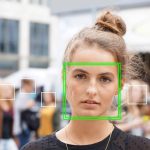
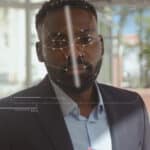


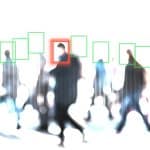


Comments